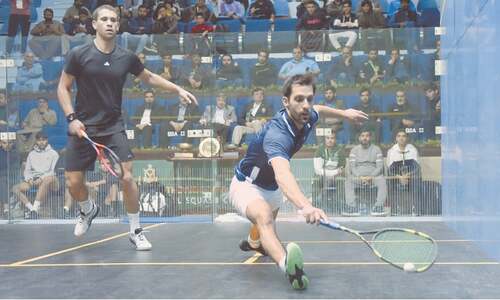TOKYO: Antonio Inoki, a Japanese professional wrestling star turned politician, has died aged 79, after years of battling a rare disease, the company he founded said on Saturday.
His death, which public broadcaster NHK said was from heart failure, brought to an end a varied life in the public eye, during which Inoki fought Muhammad Ali, fostered close personal ties with North Korea, and helped free hostages in Iraq.
The Yokohama native — born Kanji Inoki — also starred in American wrestling promotions, as well as serving two separate terms in Japan’s legislature.
“New Japan Pro-Wrestling is deeply saddened at the passing of our founder, Antonio Inoki,” the company he started in 1972 posted on Twitter. “His achievements, both in professional wrestling and the global community are without parallel and will never be forgotten.”
The lantern-jawed, 1.9-metre (6-foot-three-inch) performer entered politics, winning a seat in the upper house of Japan’s parliament in 1989. He made headlines the next year going to Iraq during the Gulf War and intervening on behalf of Japanese hostages, who were subsequently released.
Tributes to Inoki poured in across social media. Atsushi Onita, another pro wrestler turned politician, tweeted: “An era has come to an end.” “Thank you, Inoki-san. The supreme father of pro wrestling,” he wrote.
US wrestling legend Triple H called Inoki “one of the most important figures in the history of our business, and a man who embodied the term ‘fighting spirit.’”
“The legacy of WWE Hall of Famer Antonio Inoki will live on forever,” added the chief operating officer of World Wrestling Entertainment (WWE).
Inoki became one of the biggest names on Japan’s pro-wrestling’s circuit in the 1960s. His fame went global in 1976 when he had a mixed martial arts match with boxing legend Muhammad Ali, billed as “the bout of the century”.
There followed appearances in the WWF, as WWE was then known. The company said Saturday: “One of the key figures in the history of Japanese wrestling, Antonio Inoki was among the most respected men in sports-entertainment and a bona fide legend in his homeland.”
Inoki developed close ties with North Korea because his mentor, early pro-wrestling superstar Rikidozan, hailed from North Korea but could never go home after the peninsula was divided by war.
He made numerous visits to Pyongyang as a lawmaker and met high-ranking officials, saying Tokyo could play a role in mediating with its nuclear-armed neighbour.
The wrestler said he wanted to “contribute to world peace through sports” and had arranged martial arts and wrestling festivals in North Korea.
Japanese officials dismissed the trips as a sideshow.
Asked about them at the time, the then chief cabinet secretary Yoshihide Suga pointedly reminded journalists that Tokyo had a travel ban in place for North Korea, urging the politician to “act appropriately”.
However, Japanese television news provided blanket coverage of Inoki’s trip and the visits continued to prompt interest, given the lack of details leaking out about life in North Korea.
In 1995, he organised a two-day “Collision in Korea” wrestling extravaganza before more than 100,000 spectators in Pyongyang’s May Day Stadium. Inoki defeated Ric Flair in the main event with his signature “enzuigiri,” a jumping kick to the back of the head.
The fight with Ali has been described as the birth of mixed-martial arts, now a multi-billion dollar industry dominated by US-based Ultimate Fighting Championship.
Ali was supposed to be paid $6 million to lose in a fixed fight to Inoki, but the boxer had second thoughts upon arriving for the event in Tokyo, according to wrestling journalist Dave Meltzer. In the end, the fight was real, but under stipulations that Inoki could kick only while he had one knee on the mat.
“Inoki came out from round one on his back, crawling around the ring like a crab striking Ali’s legs,” recalled sports writer Robert Whiting in a 2016 podcast. “The entire fight, Ali threw a total of six punches. It was the worst thing I’ve ever seen.”
The match went to a 15-round draw, and Ali ended up being paid only $1.8 million, Meltzer wrote.
Inoki, unmistakable from his outsized chin and trademark tie and red scarf, also forced the government to take an official position about aliens when he tabled a question in a budgetary committee in 2017, saying he had seen a mysterious flying object disappearing over the horizon.
Inoki lost his seat in 1995 and retired as a wrestler in 1998, but was re-elected to the upper house in 2013 as a member of a different opposition party.
He retired from politics in 2019, and a year later said he had been diagnosed with heart disease.
On his YouTube channel, called “Antonio Inoki’s Last Fighting Spirit,” he was shown going in and out of the hospital in the last few years, raising a clenched fist as he went for treatment of systemic amyloidosis, a rare ailment involving a buildup of a protein called amyloid in the organs.
Published in Dawn, October 2nd, 2022















































Dear visitor, the comments section is undergoing an overhaul and will return soon.